Capital Impact Focuses on Expanding Equity, Justice, and Opportunity in Third Quarter
Broadening opportunities for low-income communities – through investments in health, education, and community development –are helping to address systemic disenfranchisement and expand equity
Arlington, VA (December 11, 2018) – Throughout 2018, Capital Impact Partners has continued to invest in shared prosperity, equity, and inclusion for its communities nationwide. With income inequality, mass incarceration, wealth stripping, and other forms of structural discrimination continuing unabated, breaking barriers to success for underinvested communities has become ever more important. Capital Impact announced today that its third-quarter financing and investment efforts are expected to serve more than 14,500 beneficiaries and create more than 515 permanent and construction-related jobs. The organization also produced two new reports focused on financial inclusion of returning citizens and the promise of worker cooperatives.
“Reflecting on this year has reinforced for me the need for Capital Impact to continue innovating to address racial and social inequities, whether through our lending or thought leadership and partnerships,” said Ellis Carr, president and CEO of Capital Impact. “2018 is the 50th anniversary of 1968, a year that saw considerable upheaval, but also promise for racial and social justice. While gains have been made over the last 50 years for individuals of color, the injustices of that era linger, the effects still being felt nationwide. At Capital Impact, these reflections strengthen our resolve to work for equity and opportunity for our most vulnerable communities.”
Convening Partners and Community Leaders to Expand Equity
Transforming marginalized communities into places of opportunity comes from disrupting structural racism and discrimination in order to expand economic and social justice. To that end, Capital Impact engaged in research, thought leadership, and convenings around issues that help create economic mobility for groups that need it the most.
As Baby Boomer business owners near retirement, succession planning is critical for maintaining healthy small businesses and strong communities. However, many Baby Boomer business owners do not have business continuity plans, leaving holes in local economies and threatening jobs. Conversion of these businesses to an employee ownership model is a solution for building wealth, retaining jobs, and expanding economic opportunities, especially for women and minority employees.
A newly released report from Capital Impact Partners and The ICA Group, with funding from Citi Community Development, identifies key sectors, regions, and strategies for converting business ownership to employees using a cooperative model, which helps transform the lives of economically vulnerable communities. “Co-op Conversions at Scale: A Market Assessment for Expanding Worker Co-op Conversions in Key Regions & Sectors (PDF),” illustrates how conversions can anchor successful businesses, build assets for employees, retain quality jobs, and drive local prosperity. Capital Impact followed up the report with a convening of cooperative, financial, political and small business leaders to discuss the ways in which this model can scaled up across the U.S.
Capital Impact also took a leadership role in exploring how financial institutions can be more inclusive of individuals with criminal records. Returning citizens – individuals re-entering society after incarceration or with a criminal record – have particular difficulty in establishing financial stability, not to mention their personal dignity. It is an issue that by 2030 will touch an estimated 100 million Americans. To address this issue, Capital Impact joined with Mission: Launch, an organization focused on transforming the trajectory of individuals living with criminal records, to host a convening and publish a report on the role that financial institutions can play in improving financial stability for returning citizens and their families. Capital Impact continues to look for opportunities to weave the findings from these efforts into the organization’s lending and equity and impact work.
Capital Impact’s $31 million in third-quarter financing spans several states, including California, Connecticut, New York, Texas, and Washington. This effort helped increase access to quality health care for vulnerable older adults; create new educational opportunities; and create safe spaces for immigrants to live in communities across the United States.
Third quarter project lending highlights include:
Investing in Inclusive Communities
For more than 100 years, Tacoma Community House (TCH) in Tacoma, Washington has supported the communities between Seattle and Portland, Oregon. However, the region has seen an increasing number of farmworkers and refugees, resulting in a significant need for social and legal services. With support from the Community Development Financial Institution (CDFI) sector, TCH is growing to fill those needs with the construction of a new 27,000 square foot facility.
TCH is the only center providing comprehensive services to immigrants and refugees in the region. TCH serves immigrants from 105 countries – approximately 4,000 individuals each year. The majority of their clients are of Latino and Asian descent, with the remainder hailing from Eastern Europe, the Middle East, and Africa.
Through partnerships with regional community colleges, businesses, housing providers, local health centers, and government offices, the center provides access to education programs for children and adults and job placement, internships, and training for job seekers. TCH also offers immigration services and advocacy for victims of crime and abuse. All of these services add up to a vital safety net for low-income and marginalized communities within Washington and Oregon. Capital Impact supported TCH with a $6.5 million loan as part of a New Markets Tax Credit allocation to jumpstart construction, with Nonprofit Finance Fund providing a matching allocation, and PNC Bank serving as the tax credit investor.
Increasing Access to Health Care
Often overlooked in discussions about health care is the dental care crisis affecting too many low-income and older adult populations across the country.
Recognizing this issue, Tri-State Community Healthcare in rural Adelanto, California is expanding its work to provide high-quality dental care. The Federally Qualified Health Center (FQHC), serving mostly Medicaid and Medicare patients, is creating a 2,400 sq. ft. dental clinic near its main medical clinic. The new facility will provide high-quality dental services, including Denti-Cal coverage, to a community where 66 percent of residents are low-income. Capital Impact provided a $450,000 loan to renovate the space to the standards of a dental clinic. This project will serve 4,000 patients, and will create nine full-time jobs and retain four full-time jobs.
Providing High-Quality Education
Building opportunity for individuals and communities takes a strong foundation; high-quality education is an integral element of that foundation. Capital Impact’s charter school construction and financing support in the third quarter of 2018 resulted in 654 students accessing education within their community. In addition, the organization supported projects pursuing innovative models, such as “diverse by design” education and affordable housing for participants of school tutoring programs.
San Antonio, TX, is a city on the rise. New city residents are integrating into communities where families have lived for generations. One-third of the population has an income of $33,000 or less. In communities of color, where little investment has historically been made in the education system, children need additional options to help them achieve academically at high levels. In the rural, lower-income outskirts of San Antonio, Building Hope is supporting the Riverwalk Education Foundation to build a new campus of its Schools of Science and Technology.
The School of Science and Technology Discovery – Culebra will open in temporary facilities until the ground-up construction of a 66,400 sq. ft. school building is complete. To finance the new structure, Capital Impact provided $2.9 million as part of a $14.6 million loan with PNC Bank and Building Hope. Starting out with 300 students in pre-kindergarten, first grade, and fifth through sixth grades, the school anticipates that it will expand to 750 pre-kindergarten through eighth grade students, the majority of whom qualify for free and reduced-price lunch and are student of color – approximately 50 percent Latino and 20 percent African American. The investment created 100 construction jobs and 34 full-time positions.
For children living in Brooklyn, New York, few high-quality school options exist in the downtown area, leaving low-income children struggling in low-performing schools and inhibiting them from achieving their full potential. In particular, students with learning disabilities have a difficult time finding schools that adequately support their educational needs.
Brooklyn Laboratory Charter Schools is creating a high school in Dumbo, a central location with good public transportation access so that students can commute from across the borough. Currently serving more than 600 students, the school – which will be nearly 82,000 sq. ft. – expects to scale up to serve 1,200 students by 2022. The majority of the students are expected to be African American, 85 percent of whom will be eligible for free and reduced-price lunch, and 32 percent of the student population are going to receive special education at the school. Because of its proximity to technology companies in Dumbo, the school curriculum focuses heavily on technology. Capital Impact provided $4.6 million as part of a $13.2 million loan in partnership with Nonprofit Finance Fund and the Charter School Growth Fund. In addition to the student impact, the project creates 400 construction jobs and 131 full-time jobs.
New Los Angeles Middle School (New L.A.) serves a majority low-income, Latino and African-American student population, 90 percent of whom are eligible for free or reduced-price lunch, and 15 percent of whom are English language learners. With a rigorous curriculum, small classes, a diverse student body, and attentive teachers, New L.A. is a nurturing standards-based school where students routinely outperform schools in the surrounding L.A. Unified School District. Starting with 150 sixth through eighth grade students, the school expects to educate 312 students as it scales up. Capital Impact supported New L.A. with a $1.9 million loan to renovate a 24,000 sq. ft. building, which will become the school’s permanent home.
In Bridgeport, CT, Great Oaks Charter School is bringing high-quality education to a census tract with a 71 percent poverty rate. Eighty-six percent of the students who will attend the school qualify for free and reduced-price lunch. Schools in the area are not high performing; additionally, there are only a handful of charter schools serving the area, creating long waiting lists.
Capital Impact supported the construction of a 70,000 sq. ft. facility that will become the permanent home of Great Oaks Charter School. Capital Impact participated in the $20.6 million loan, providing $3.6 million for the building construction. The school will scale up from serving 400 students in grades 6-9 to 750 students in grades 6-12, 15 percent of whom are English language learners and 20 percent of whom have disabilities. Great Oaks has been improving the academic performance of its students significantly year-over-year, with a focus on professional development for local students. Through an adjacent affordable housing development, the school will also offer housing for school tutors.
Creating schools that intentionally reflect the socioeconomic, racial, and cultural diversity of the communities in which they operate – diverse by design – is a promising practice within education that is showing results. Citizens of the World Charter Schools (CWC) is the first national school network to follow a diverse by design model, creating an environment in which all students thrive no matter their background, precisely because they are integrated. Diversity is a cornerstone of school leadership as well, with minorities making up 60 percent of the leadership team and 40 percent of the board.
In the Los Angeles community of Silver Lake, the need for space for CWC’s elementary school has meant operating out of four separate sites, disrupting the flow of school programs. Capital Impact, through $4.2 million in loans as part of a larger New Markets Tax Credit deal, supported the renovation of a 30,000 sq. ft. building that will become the permanent home of CWC-Silver Lake. Currently serving 572 students in grades transitional kindergarten (TK)-5, the school will scale up to serve 650 students. CWC-Silver Lake outperforms more than 80 percent of other schools in the Los Angeles United School District. The staff is also joining with other CWC schools in the L.A. area to support a regional Diversity, Equity, and Inclusion initiative to address achievement gap challenges.
# # #About Capital ImpactThrough capital and commitment, Capital Impact Partners helps people build communities of opportunity that break barriers to success. We champion social and economic justice for underserved communities to foster good health, economic opportunity, and interconnectedness. Through mission-driven lending, incubating social impact programs, impact investing, and policy reform we partner with local communities to create equitable access to health care and education, healthy foods, affordable housing, and dignified aging for those most in need. We have disbursed more than $2.5 billion to revitalize communities over the past 35 years. Our leadership in delivering financial and social impact has resulted in Capital Impact earning a “AA-” rating from S&P Global and being recognized by Aeris since 2005 for our performance. Headquartered in Arlington, VA, Capital Impact Partners operates nationally, with local offices in Detroit, MI, and Oakland, CA. Learn more at www.capitalimpact.org.







